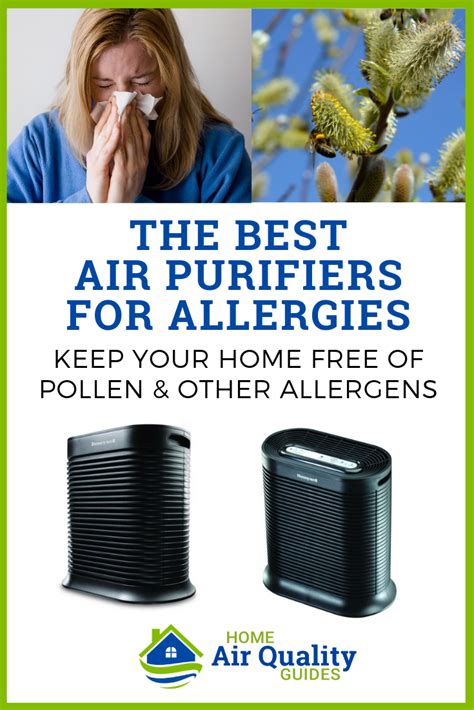Introduction
Allergies are a growing problem worldwide, affecting over 1 billion people. The symptoms of allergies can range from mild discomfort to life-threatening anaphylaxis. While there is no cure for allergies, there are many ways to manage the symptoms, including avoiding allergens, taking medication, and using an air purifier.

How Do Air Purifiers Work?
Air purifiers remove allergens from the air by using a variety of methods, including:
- HEPA filters: HEPA filters are made of a fine mesh that traps particles as small as 0.3 microns. This makes them effective at removing allergens such as pollen, dust mites, and pet dander.
- Activated carbon filters: Activated carbon filters are made of a porous material that absorbs gases and odors. This makes them effective at removing allergens such as smoke, chemicals, and perfumes.
- UV light: UV light can kill bacteria and viruses, which can also help to reduce allergy symptoms.
Benefits of Air Purifiers for Allergy Relief
There is a growing body of evidence to support the use of air purifiers for allergy relief. Some of the benefits of using an air purifier for allergy relief include:
- Reduced allergy symptoms: Air purifiers can help to reduce allergy symptoms such as sneezing, runny nose, itchy eyes, and congestion.
- Improved sleep: Air purifiers can help to improve sleep quality by removing allergens from the air. This can be especially beneficial for people with allergies who have difficulty sleeping due to their symptoms.
- Reduced risk of asthma attacks: Air purifiers can help to reduce the risk of asthma attacks by removing allergens from the air. This can be especially beneficial for people with asthma who are triggered by allergens.
How to Choose an Air Purifier for Allergy Relief
When choosing an air purifier for allergy relief, there are a few things to keep in mind:
- The size of the room: The size of the room will determine the size of the air purifier you need.
- The type of allergens: The type of allergens you are allergic to will determine the type of air purifier you need. For example, if you are allergic to pollen, you will need an air purifier with a HEPA filter.
- The noise level: Air purifiers can be noisy, so it is important to choose one that is quiet enough for your needs.
Tips for Using an Air Purifier for Allergy Relief
Here are a few tips for using an air purifier for allergy relief:
- Place the air purifier in a central location: This will help to ensure that the air purifier can circulate the air throughout the room.
- Run the air purifier continuously: This will help to keep the air clean and free of allergens.
- Change the filter regularly: The filter in your air purifier will need to be changed regularly to keep it working properly. The frequency with which you need to change the filter will depend on the type of filter and the amount of use it gets.
Conclusion
Air purifiers can be a helpful tool for managing allergy symptoms. By removing allergens from the air, air purifiers can help to reduce symptoms such as sneezing, runny nose, itchy eyes, and congestion. Air purifiers can also improve sleep quality and reduce the risk of asthma attacks. When choosing an air purifier for allergy relief, it is important to keep in mind the size of the room, the type of allergens you are allergic to, and the noise level. By following these tips, you can find the best air purifier for your needs and enjoy the benefits of allergy relief.
Frequently Asked Questions
Q: What is the best type of air purifier for allergy relief?
A: The best type of air purifier for allergy relief is one that has a HEPA filter. HEPA filters are effective at removing allergens as small as 0.3 microns, which makes them ideal for removing allergens such as pollen, dust mites, and pet dander.
Q: How often should I change the filter in my air purifier?
A: The frequency with which you need to change the filter in your air purifier will depend on the type of filter and the amount of use it gets. However, most experts recommend changing the filter every 3-6 months.
Q: Can air purifiers help to prevent allergies?
A: Air purifiers cannot prevent allergies, but they can help to reduce the symptoms of allergies. By removing allergens from the air, air purifiers can help to reduce the exposure to allergens that can trigger allergy symptoms.
Q: Are air purifiers safe for children?
A: Yes, air purifiers are safe for children. However, it is important to choose an air purifier that is the right size for the child’s room and to follow the manufacturer’s instructions for use.





















